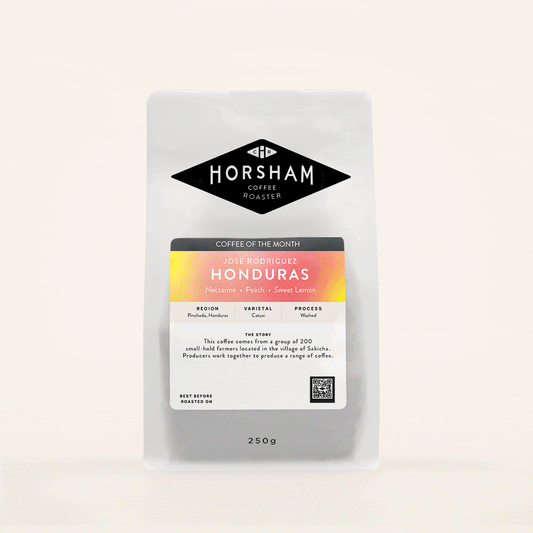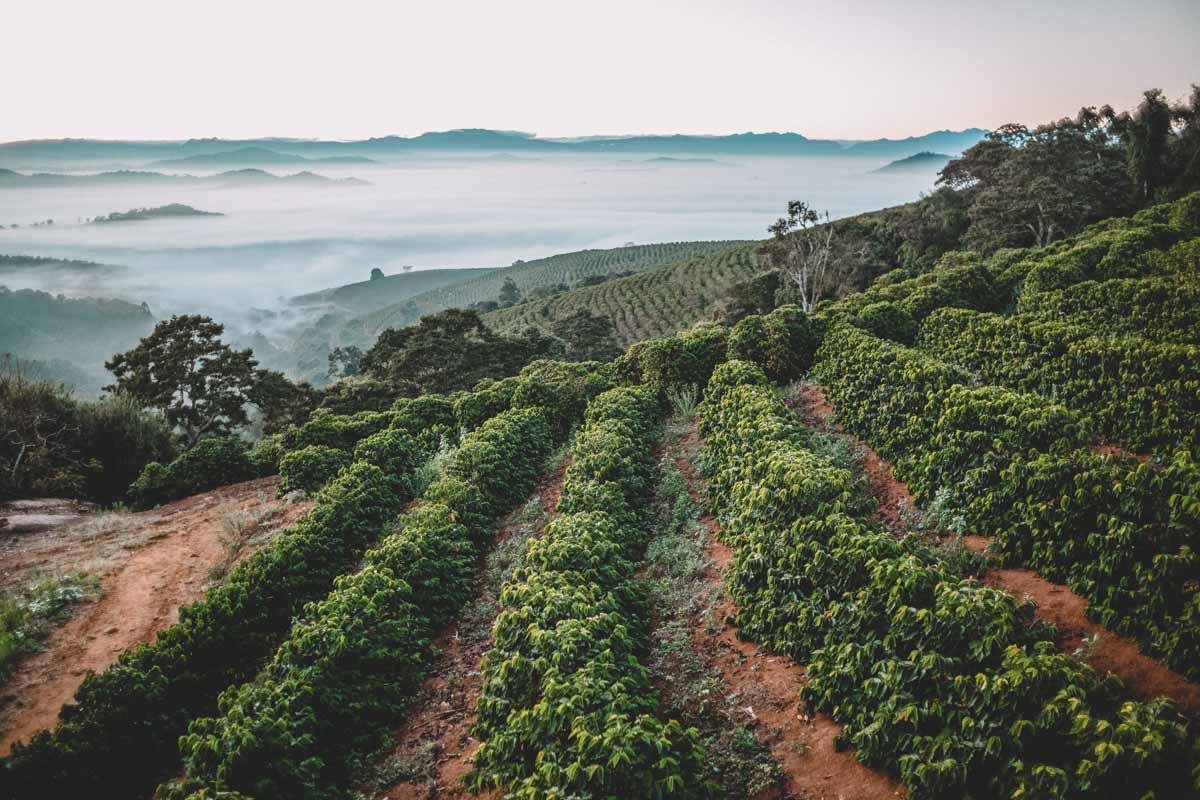
COFFEE FROM
Brazil
Brazilian coffee is known for its distinctive flavour profile, often featuring notes of nuts and chocolate. Discover its history, processing methods and flavours.
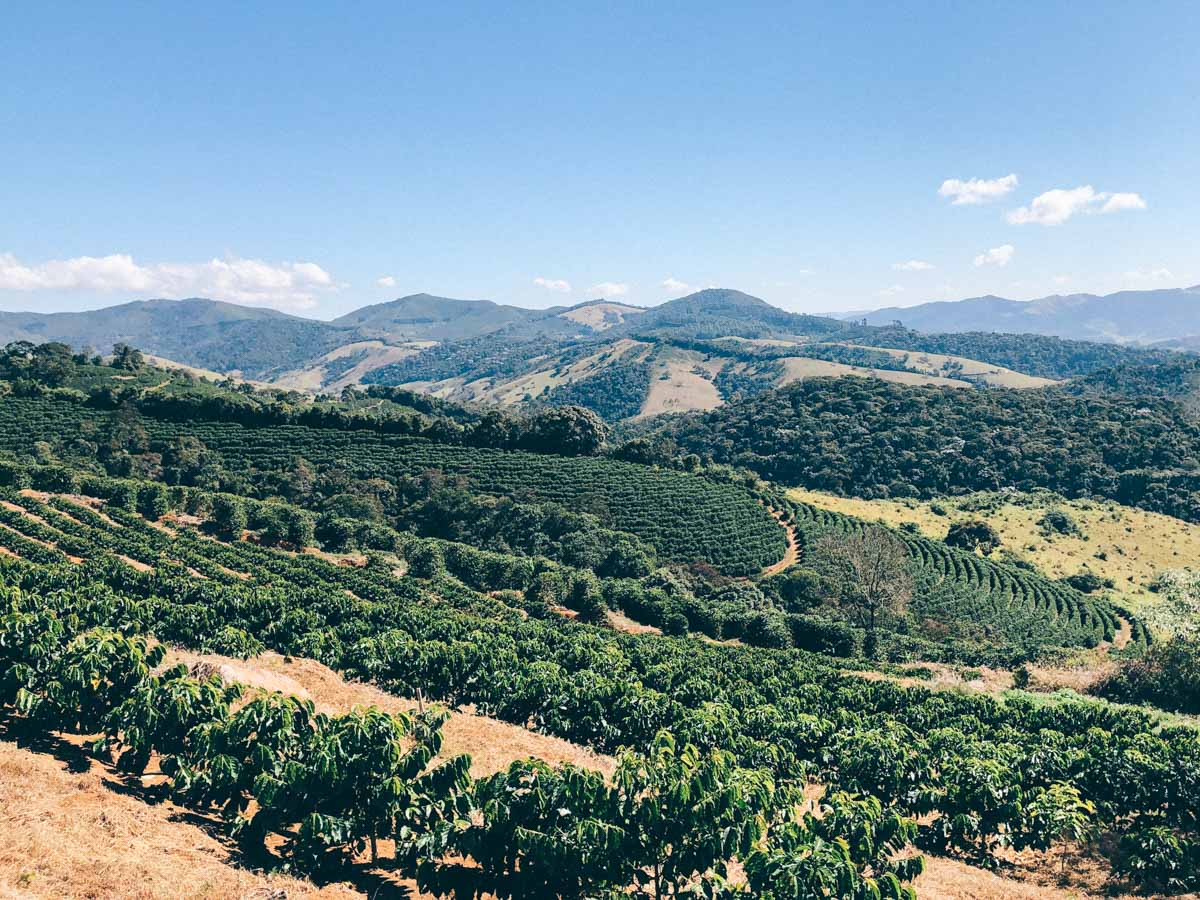
Overview
Coffee's journey in Brazil, a country with a kaleidoscope of cultures and the world's tenth-largest economy, began in the early 1800s. Its introduction from French Guiana marked the inception of what would become a coffee empire. Today, Brazil stands as the world's largest coffee producer, contributing about one-third of the global supply, primarily from Minas Gerais, Espirito Santo, and Sao Paulo. This production prowess combines with a significant domestic consumption, as Brazilians drink nearly half of their output.
Brazil's terrain and climate are ideal for coffee cultivation. The rich soil and warm, humid conditions are perfect for growing both arabica and robusta beans. However, the country mainly focuses on arabica, with around 80% of its yield being of this variety. These beans, thrive in the higher altitudes of southern Brazil. In contrast, robusta, forming about 20% of the harvest, is cultivated in the cooler, flatter northern regions.
A prominent feature of Brazilian coffee is the large-scale production areas. The renowned 'Brazil Santos' coffee, named after its port of export, epitomizes this grand scale. Historically, Brazilian coffee lacked traceability due to massive blending in large lots. However, the past decade has seen a significant improvement, with specialty coffees emerging from smaller farms and groups of producers.
Our partnership with Fazenda Inhame, a small, family-owned farm, exemplifies this new era of traceable, quality Brazilian coffee, aligning with our commitment to sustainability and excellence in every cup.
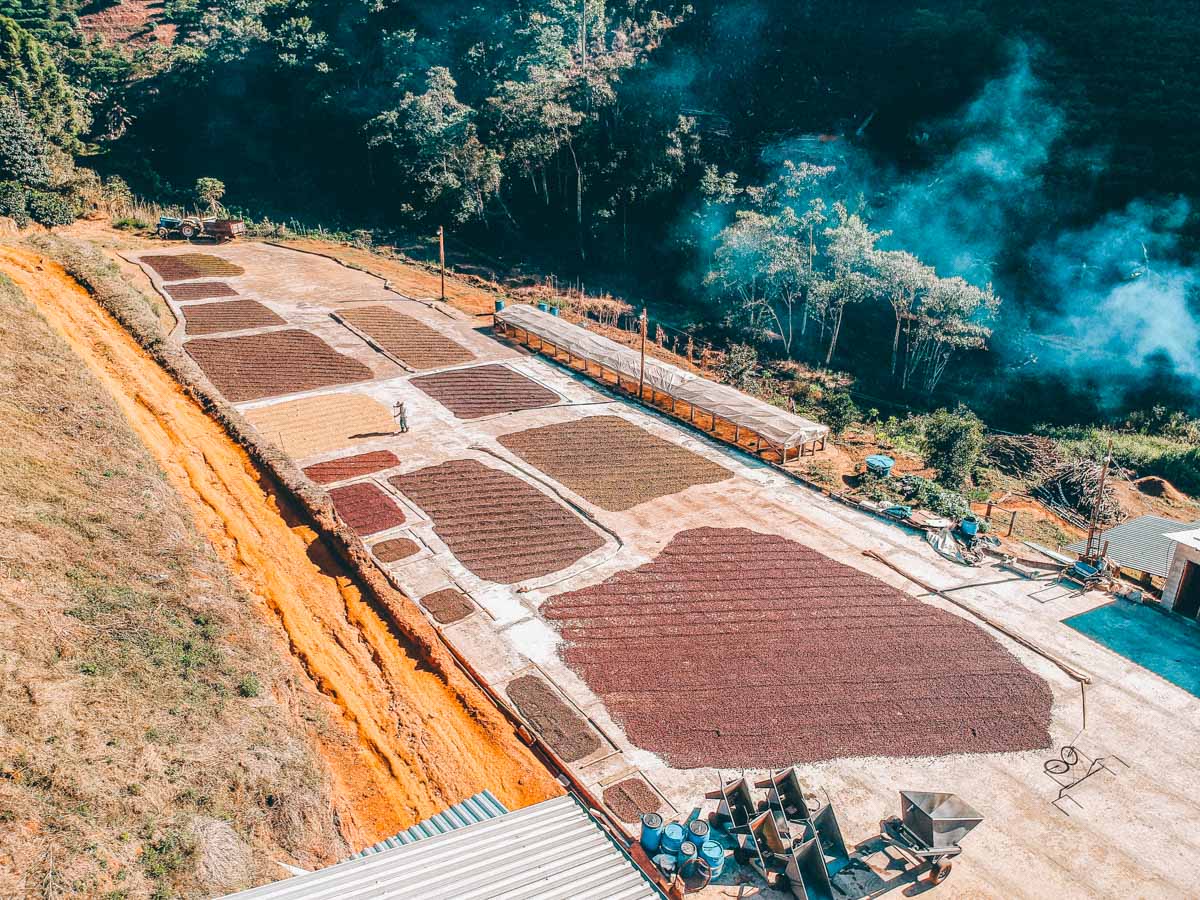
Processing Methods
Brazil has a strong reputation for its production of natural and pulped-natural coffees. In the natural process, coffee beans are harvested and dried, typically on spacious concrete patios.
The pulped-natural method involves removing the outer layer of the coffee cherry with a pulping machine and then drying it, often on those same large concrete patios. This approach bears a resemblance to the 'honey-processed' coffee method.
Notably, some Brazilian farms are pioneering with washed coffees and innovative methods like anaerobic fermentation, unveiling an even broader spectrum of flavours.

Flavour Profiles
Brazilian coffee has a recognisable flavour profile, distinguished by its nutty, chocolate notes and gentle fruit flavours. Really high quality Brazilian coffees with more complexity, tend to have nuances of cashew, almond, and rich chocolate, complemented by balanced fruit undertones. These may range from luscious stone fruits to the dried sweetness of raisins and prunes.
The lower acidity and balanced flavour profile means these coffees work very well for espresso and pair nicely with milk.
Explore Recommended Coffee
-
Horsham Coffee Roaster
Coffee of the Month Subscription
Regular price From £10.25Regular priceUnit price / per -
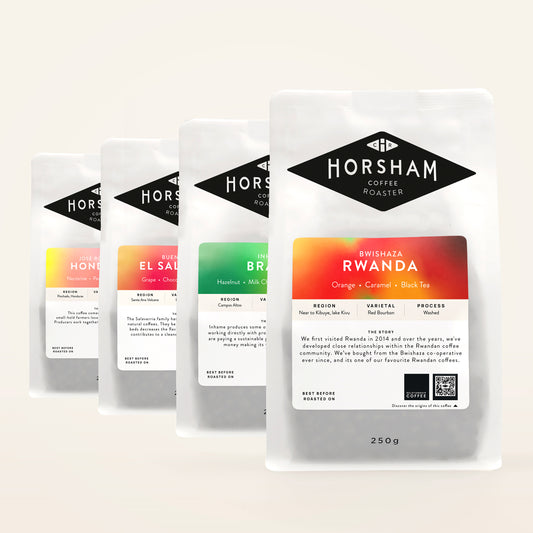 10% OFFHorsham Coffee Roaster
10% OFFHorsham Coffee RoasterSingle Origin Coffee Selection
Regular price £36.22Regular priceUnit price / per£40.25Sale price £36.22Sale -
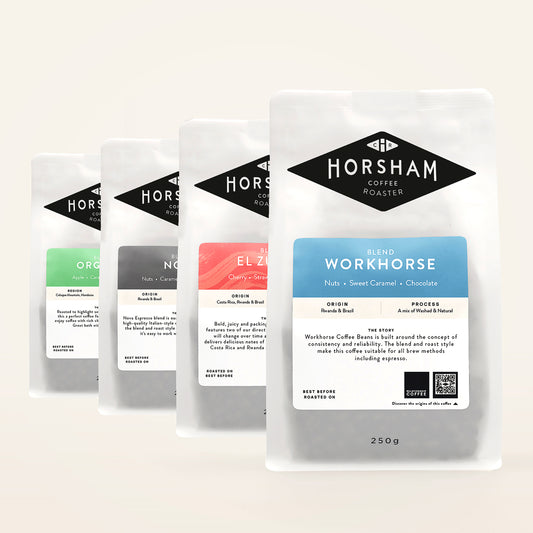 10% OFFHorsham Coffee Roaster
10% OFFHorsham Coffee RoasterBlend Selection
Regular price £35.00Regular priceUnit price / per£39.00Sale price £35.00Sale -
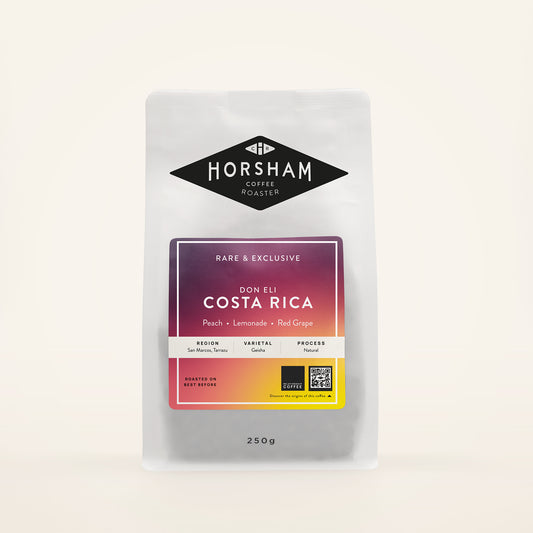 NEWPeach | Lemonade | Red Grape
NEWPeach | Lemonade | Red GrapeDon Eli Geisha Costa Rica | Natural
Regular price From £19.50Regular priceUnit price / per£0.00Sale price From £19.50NEW
